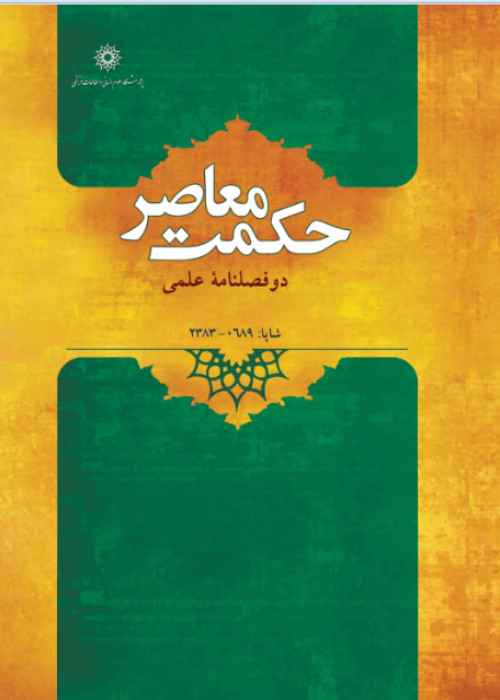Comparing the Two Concepts of "Irony" and rendi in Rorty and Hafez
"Irony" is one of the pivotal themes of Richard Rorty's thought. This concept has a long-lasting background in the history of philosophy. At first it was used in the Ancient Greece to describe the method of Socratic dissimulation which drew the attention of great thinkers such as Søren Kierkegaard. On the other hand, the concept of rendi has also an enduring and meandering background in the history of Persian language. This concept particularly has a focal place in Hafez's poetry and it is so significant that rendi is considered as the most consistent theme in Hafez's thought. The main purpose of this research is to compare the two concepts of "irony" and rendi in the thoughts of two outstanding thinkers who lived and flourished in two different cultural backgrounds.
The comparative research method is used in this study. Comparison would help us to understand two phenomena if we could find similarities between them, and these findings could enhance our knowledge about the two phenomena to a certain extent. Comparison sheds light on the points that have been concealed and ignored, and helps us to understand the affinities and differences of various cultural and thought resources. In fact, comparison reveals unique as well as similar aspects of thoughts and cultures. The main question of the present research is that in what aspects the two concepts of Richard Rorty's "irony" and Hafez's rendi are similar and in what respects they differ. Although such a comparison seems at first sight impossible or at least problematic, it reveals many similarities between the two concepts, despite the cultural and linguistic differences of Hafez and Rorty. Not only does the comparison of rendi and "irony" show the literary and philosophical values of these two concepts in two different cultures, but it also provides the possibility to look into the literary and philosophical texts from alternative and new perspectives.
From Rorty's viewpoint, human beings are free to build their inner self and his ideal character is "ironist". The Ironist is a playful, free, and innovative person. Like a strong poet, an "ironist" tries to show that he is not a duplicate of another person and he intends to recreate himself in a unique and distinctive manner. Indeed, the "ironist" endeavours to recreate the best of himself. From Hafez's viewpoint, on the other hand, rend is someone who simultaneously experiences the love of living life, attempts to understand it, and is amazed by its mysteries. Hafez asks that how we could live in an age that hypocrisy, deceitfulness, and conformity (i.e. blending in with the crowd) are rife and that the impious and the hypocrites have dominated the arena. Therefore, Rorty's "ironist" and Hafez's rend have similarities in certain respects. Rorty's "ironist" has a rebellious and independent character that views everything with a sceptic outlook. Hafez's rend is also an extraordinary combination of scepticism and certitude, and tries to save his life from any sense of belonging and attachment. Rorty's "ironist" is a free person who creatively thinks alternatives. Rend, too, represents outstanding aspects of creativity and delicately protests against the moral degradation and improbity of his age.On the other hand, there are some differences between them as well. One of the most important differences is the difference in poetry insight and doing philosophy. The potentials of poetic language provide Hafez with the possibility of introducing rend as a person who equivocates dauntlessly and incorporates the conflicting elements in itself. However, Rorty's "ironist" emerges as a philosopher (yet a non-essentialist one) and his attempt is focussed upon creating the final vocaublary which are less contradictory and which would be able to persuade the audience. From this perspective, while Hafez's rend tries to find the persuasion in a poetic language which is sarcastic and equivocal, Rorty's "ironist" is pursuing it in a consistent and less contradictory language.
rendi , Irony , Richard Rorty , Hafez , Comparative Analysis
- حق عضویت دریافتی صرف حمایت از نشریات عضو و نگهداری، تکمیل و توسعه مگیران میشود.
- پرداخت حق اشتراک و دانلود مقالات اجازه بازنشر آن در سایر رسانههای چاپی و دیجیتال را به کاربر نمیدهد.



